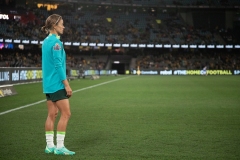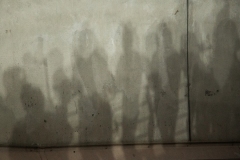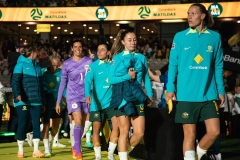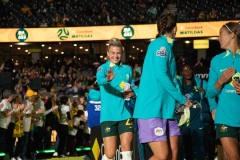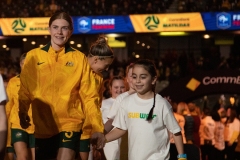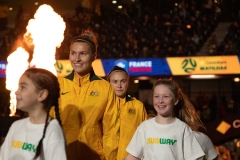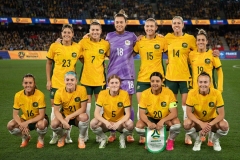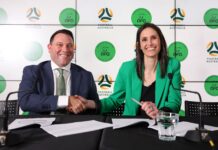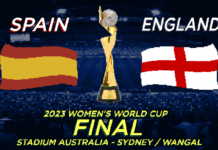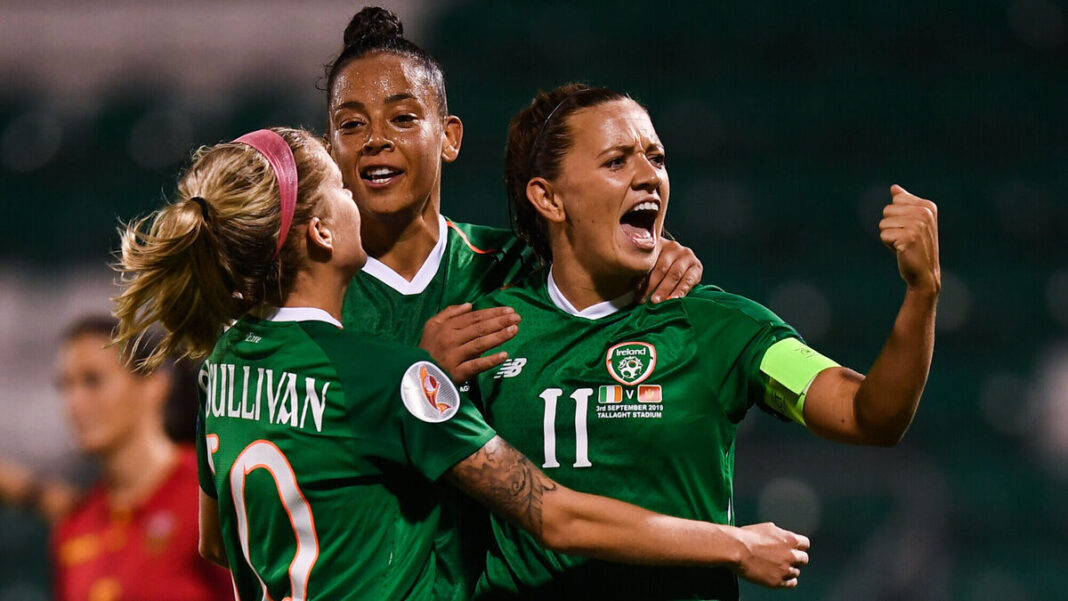

Even with their shared histories spanning centuries of British colonial history, millions of diaspora, and a shared love of the world game, this week’s fixture between the Republic of Ireland and Australia will be the sides’ first meeting in senior women’s football. Beyond90 takes a look across the globe to see what awaits the Matildas in the Emerald Isle.
If You Know Your History…
Despite the founding of the Irish Football Association in 1880, and the Irish Republic’s declaration of independence in 1919, the daughters of Éire had to wait almost 100 years before they’d be allowed to play organised football in their homeland.
Formed in 1973, the independent Ladies Football Association of Ireland acted as the guardian of the women’s game, organising both the Ladies League of Ireland and the country’s first-ever women’s international – a 3-2 win over Wales in Llanelli – within a year of its foundation.
Just shy of a decade later, and with women’s football growing in popularity and gaining increased recognition across Europe, the Republic played its first competitive fixture in 1982: a 0-3 qualifying loss to Scotland ahead of the 1984 Women’s European Championships.
Since the early days, Ireland has continually struggled to make inroads in major continental and global tournaments, even more so than their male counterparts. While the Republic has seen some success in underage tournaments throughout the 2010s, the Girls in Green have finished third out of five in each of their last three World Cup qualification groups, and fourth in qualifying for Euro 2013 and 2017.
Those failures have meant year after year, nations of similar size and footballing pedigree to theirs make their tournament debuts, such as Finland at Euro 2005, Iceland and the Netherlands in 2009, and Scotland and Switzerland in 2017, while Irish teams and fans have watched from the sideline waiting their turn.
Recent Results
Drawn in Group I alongside seven-time European champions Germany, the Republic started qualification strongly, earning home wins against Montenegro (2-0) and Ukraine (3-2). A last-minute equaliser from Greece forward Anastasia Spyrinidou in Athens (1-1) dampened the Irish momentum, before Vera Pauw’s side exacted revenge in Dublin (1-0), and defeated Montenegro 3-0 in Petrovac to sit top of the group.
That spate of early success was no indicator of results to follow, as a 0-3 defeat to Germany in Essen and 0-1 defeat to Ukraine in Kiev saw drop to second ahead of the side’s last match. Needing results to go their way on the final day of qualification, the Republic fell 1-3 to Germany in Dublin, only to watch Nadiia Kunina score a second-half winner for Ukraine against Greece and seal her side’s progress into the play-offs and once again condemn Ireland to an unwanted summer break.
That form of the latter stages of qualification has seen the Republic has struggle against stronger teams in Europe, leaking goals and often failing to trouble the scorers. Losses in friendlies this year to Denmark, Belgium (both 0-1), and twice to Iceland (2-3 and 0-2) have seen the Girls in Green now sitting on a seven-game losing streak.
Strengths & Weaknesses
Strengths
Contrary to what their current FIFA ranking would have you believe, Ireland is blessed with a number of quality operators in midfield. North Carolina Courage pivot Denise O’Sullivan often anchors the midfield, with Aston Villa’s Ruesha Littlejohn also having earned 60 caps for her country in the middle of the park. Arsenal star Katie McCabe captains the side, adding a burst of pace and a silken touch wherever she plays, often in a wide midfield or wing role.
On top of that talent across the middle third, seven of the side’s starting XI have won more than 50 caps for the Republic, with 32-year-old defender Áine O’Gorman her country’s third-most-capped player of all time with 107. Alongside O’Gorman in defence are Niamh Fahey (94 caps), Louise Quinn (86), and Diane Caldwell (83), lending Ireland a wealth of experience across the back as well as a depth of knowledge for younger players in the squad to draw on.
Weaknesses
For all its brilliance in midfield, Vera Pauw’s team has struggled recently at both ends of the pitch when it comes to the vital moments. Having only scored three goals over its last seven fixtures, one wonders where the goals will be coming from if not from the likes of McCabe and O’Sullivan. To that end, Ireland likely will be looking to Liverpool youngster Leanne Kiernan, Florida State’s Heather Payne, and Köln striker Amber Barrett to provide some forward thrust when the side finds itself north of the middle third, though how much success that trio will find against the Matildas’ towering defence remains to be seen.
Similarly, even the most cursory viewing of the side’s two friendlies in Reykjavik showed a defence at times at war with itself, failing to follow up on second chances and clear its lines when needed. While it’s fair to place some of the blame on the side’s ongoing transition between experienced Birmingham keeper Marie Hourihan and Reading’s Grace Moloney, a backline of 80-plus cap defenders simply shouldn’t be conceding goals of these ilk against any opponent. That lack of communication between the lines will be something Tony Gustavsson and his Matildas side will look to take advantage of, with poachers such as Sam Kerr and Mary Fowler sniffing around the penalty area for even the slightest mistake in front of goal.
Key Players
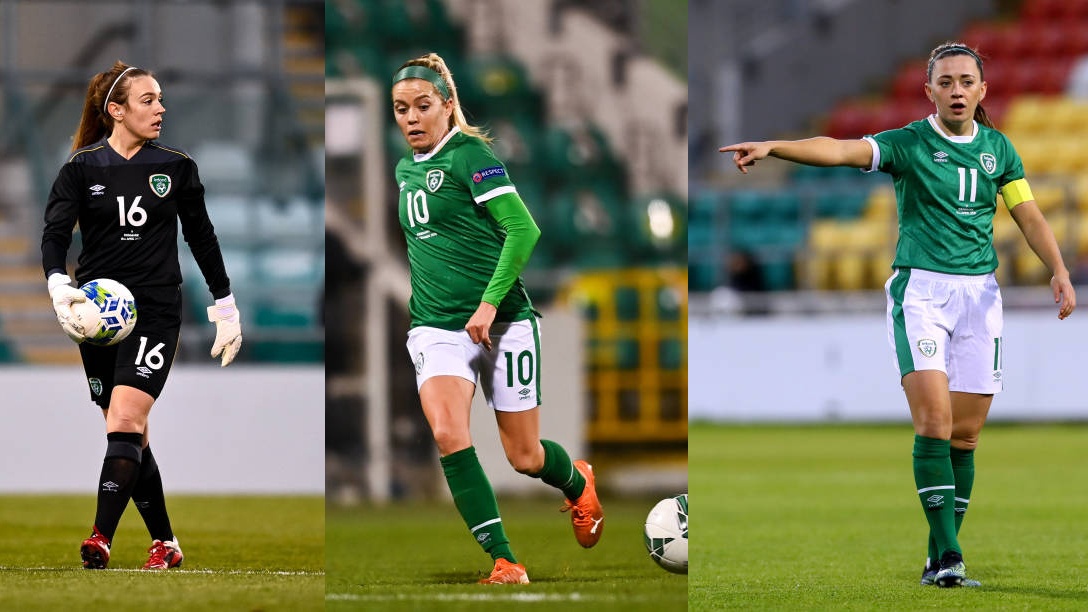
It’s not unfair to assume Ireland’s defence will be under some form of duress against their antipodean opponents, and perhaps no player will be so more than goalkeeper Grace Moloney. A consistent fixture since making her debut for WSL club Reading in 2009, the club at which she’s played since she was nine, Moloney has over 150 top-flight appearances for the Royals, keeping players like Football Ferns stalwart Erin Nayler on the bench over her time at the club. While not the tallest goalkeeper in the WSL at 1.70m – a full 11cm shorter than Karen Bardsley and Ann-Katrin Berger – Moloney’s experience at club level will likely prove helpful against a Matildas team now brimming with England-based players.
A genuine star of the W-League during her time with Canberra United and Western Sydney, Denise O’Sullivan is one of Ireland’s all-time great women’s footballers. Part creative genius, part defensive workhorse, O’Sullivan’s passing and finishing are something to behold, while her physical presence in midfield is outstanding for a player of her size. Having experienced continued success in the NWSL with North Carolina Courage, where she’s won three league titles and two championships, the diminutive Leesider will be looking to trouble the Matildas been the lines, feeding teammates further forward with her trademark assists.
Having been named the Republic’s youngest-ever captain at just 21, the versatile Katie McCabe has become one of the brightest stars in Irish football over the last two decades. Winning three Irish Cups and two league titles with Shelbourne before she could buy a pint, McCabe has more than followed in her brother Gary’s footsteps in terms of her success on the pitch. Despite debuting at international level in 2015, McCabe has excelled wherever she’s played in an emerald green shirt, be that anywhere from left fullback to a central strikers role. Most comfortable on the left flank, look out for McCabe’s pinpoint crosses and set-piece deliveries whenever the chance arises.
One to Watch
Newly-signed Glasgow City midfielder Niamh Farrelly looks to be a real prospect for the Girls in Green going forward. Another graduate of Dublin club Peamount United, Farrelly was a talented multi-sport athlete in her youth, having played Gaelic football as a teenager for local side Lucan Sarfields before making a commitment to the “invaders’ game” with the Peas. Blessed with natural pace and a certain wisdom on the pitch, the young Dubliner looks to be certainly destined for bigger things along the way, and will be a future leadership prospect for both club and country.
The More You Know…
Like her teammates O’Gorman and Farrelly, Cork-born striker Saoirse Noonan is one of many players throughout the history of Irish football to be dual-code athletes. Having grown up playing alongside brother Eoin for local club Nemo Rangers before being selected to play for her county, choosing to juggle both GAA and football commitments as well as her schooling. After All-Ireland championship victories at under-14, under-16, and under-18 level, Noonan was called up into the county’s senior team in 2018, appearing in Cork’s defeated All-Ireland senior final side the same year, and winning the National League title in 2019. After injury forced her out of the 2019 AFLW Combine, Noonan again turned out for a losing Cork side in 2020, defeated once again by Dublin at the famous Croke Park, before hanging up her Gaelic boots to focus on football in the past 18 months.
Republic of Ireland vs Australia
Tallaght Stadium, Dublin
Tuesday, 21 September – kickoff 7:00pm UTC (Wednesday 4am AEST)
TV: Channel 10 & Paramount+


